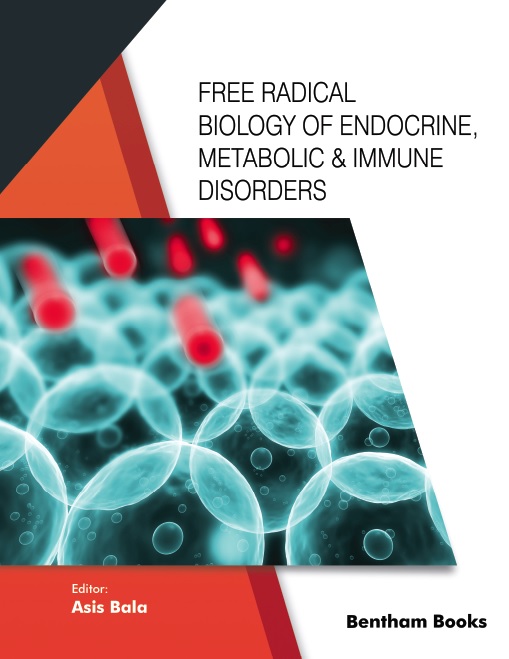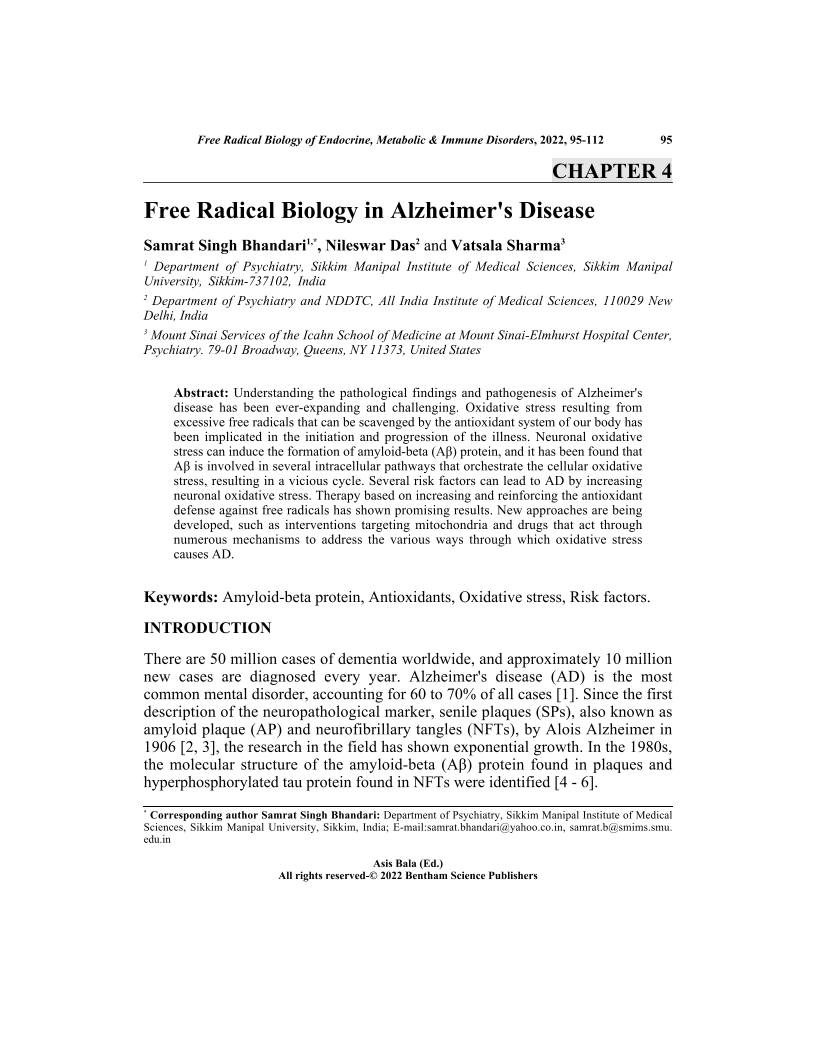Free Radical Biology in Alzheimer's Disease

- Authors: Samrat Singh Bhandari1, Nileswar Das2, Vatsala Sharma3
-
View Affiliations Hide Affiliations1 Department of Psychiatry, Sikkim Manipal Institute of Medical Sciences, Sikkim ManipalUniversity, Sikkim 737102, India 2 Department of Psychiatry and NDDTC, All India Institute of Medical Sciences, 110029 NewDelhi, India 3 Mount Sinai Services of the Icahn School of Medicine at Mount Sinai-Elmhurst Hospital Center,Psychiatry. 79-01 Broadway, Queens, NY 11373, United States
- Source: Free Radical Biology of Endocrine, Metabolic and Immune Disorders , pp 95-112
- Publication Date: April 2022
- Language: English
Free Radical Biology in Alzheimer's Disease, Page 1 of 1
< Previous page | Next page > /docserver/preview/fulltext/9789815049220/chap4-1.gif
Understanding the pathological findings and pathogenesis of Alzheimer's disease has been ever-expanding and challenging. Oxidative stress resulting from excessive free radicals that can be scavenged by the antioxidant system of our body has been implicated in the initiation and progression of the illness. Neuronal oxidative stress can induce the formation of amyloid-beta (Aβ) protein, and it has been found that Aβ is involved in several intracellular pathways that orchestrate the cellular oxidative stress, resulting in a vicious cycle. Several risk factors can lead to AD by increasing neuronal oxidative stress. Therapy based on increasing and reinforcing the antioxidant defense against free radicals has shown promising results. New approaches are being developed, such as interventions targeting mitochondria and drugs that act through numerous mechanisms to address the various ways through which oxidative stress causes AD.
-
From This Site
/content/books/9789815049220.chap4dcterms_subject,pub_keyword-contentType:Journal -contentType:Figure -contentType:Table -contentType:SupplementaryData105

